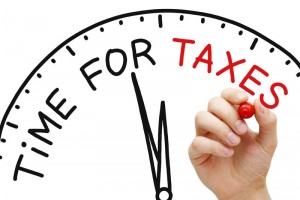 Notice 2018-92 relates to the Tax Cut and Jobs Act (P.L. 115-97) changes to sections 3402 and 3405, and the IRS’ and Treasury Department’s decision to delay an overhaul of the Form W-4 from 2019 to 2020. This notice provides interim guidance for 2019 on income tax withholding, requests comments on certain withholding procedures, and indicates that regulations are planned to update the withholding regulations to reflect changes made by the TCJA.
Notice 2018-92 relates to the Tax Cut and Jobs Act (P.L. 115-97) changes to sections 3402 and 3405, and the IRS’ and Treasury Department’s decision to delay an overhaul of the Form W-4 from 2019 to 2020. This notice provides interim guidance for 2019 on income tax withholding, requests comments on certain withholding procedures, and indicates that regulations are planned to update the withholding regulations to reflect changes made by the TCJA.
Specifically, this notice (1) announces that the 2019 Form W-4 will be similar to the 2018 Form W-4, (2) addresses new TCJA “withholding allowance” terminology, (3) continues until April 30, 2019 Notice 2018-14’s temporary suspension of the requirement to furnish new Forms W-4 within 10 days for changes resulting solely from the TCJA, (4) provides that, for 2019, the default rule when an employee fails to furnish a Form W-4 will continue to be single with zero withholding allowances, (5) allows taxpayers to take into account the qualified business income deduction under section 199A to reduce withholding under section 3402(m), (6) announces that the IRS and Treasury intend to update the regulations under section 3402 to explicitly allow taxpayers to use the online withholding calculator or Publication 505, Tax Withholding and Estimated Tax, in lieu of the worksheets to Form W-4, (7) requests comments on alternative withholding methods under section 3402(h) and announces that the IRS and the Treasury Department intend to eliminate the combined income tax withholding and employee FICA tax withholding tables under Treas. Reg. § 31.3402(h)(4)-1(b), (8) modifies notification requirements for the withholding compliance program, and (9) provides that, for 2019, withholding on annuities or similar periodic payments where no withholding certificate is in effect is based on treating the payee as a married individual claiming 3 withholding allowances under § 3405(a)(4).
Read More

 IRS Warns Consumers of Possible Scams Relating to Orlando Mass-Shooting
IRS Warns Consumers of Possible Scams Relating to Orlando Mass-Shooting